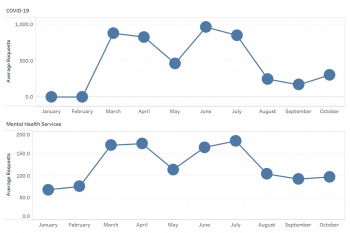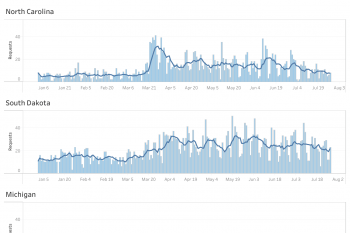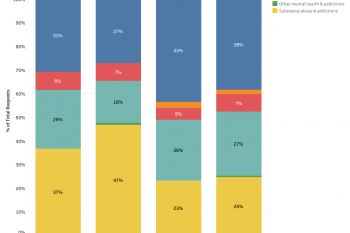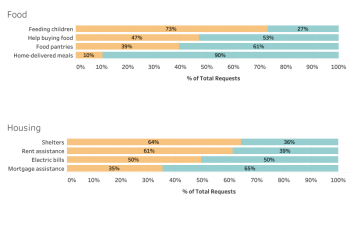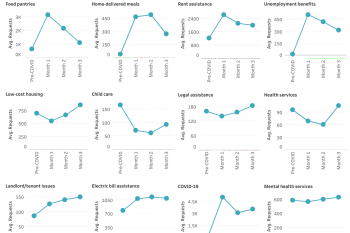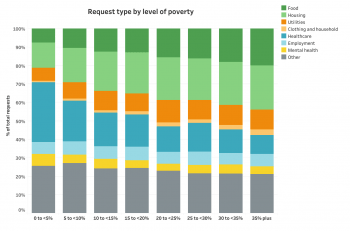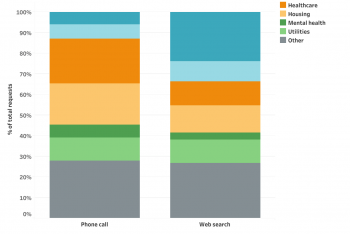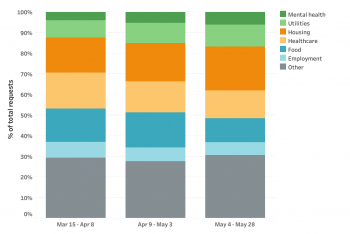In Texas, requests for mental health services rise and fall with COVID-19’s impact. The charts below show nearly identical patterns in the average number of daily requests to 2-1-1s in Texas in 2020 for COVID-19 information and assistance (top chart) and mental health services (bottom chart).
Mental health needs follow COVID trends in TX
